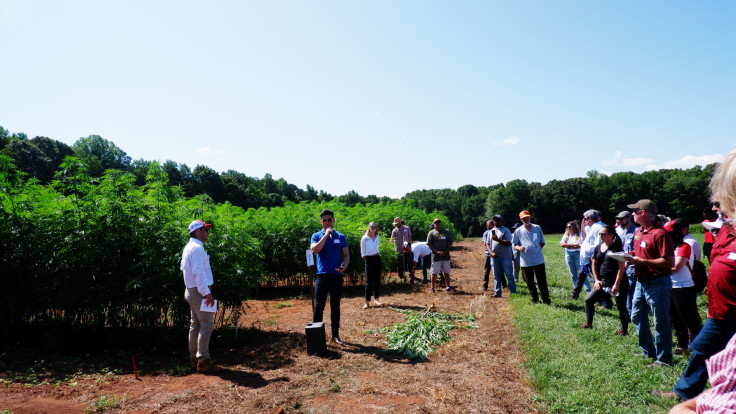Innovator Alex Wu And His Plan To Build A Greener Tomorrow With Kanda Industries

We can no longer deny the very real threat of climate change as people around the world face terrifying weather systems, and the numbers of devastated habitats and extinct species continue to grow at shocking rates. While we are seeing efforts around the globe to curb global warming and reduce carbon emissions, more must be done – and it must be done now. Resources have been depleted worldwide as our society continues to utilize outdated products and systems, and it is imperative that we find a better, more sustainable way.
Every single small eco-conscious act contributes to the bigger picture, but the fact remains that the world runs on limited resources that are acquired using environmentally destructive methods. Industrial products are made largely from sand, one of the most in-demand resources. While fossil fueled vehicles are slowly being replaced by solar or battery powered cars, there aren't any proper substitutes for sand, wood, or metal.
Alex Wu wants to change that. The innovator and business developer understands that in order to create a sustainable tomorrow, we need to start shifting material dependencies to sustainable alternatives, and engineering renewable raw materials into materials that can be used at a large scale – raw materials that can be replicated without further harming the environment. Mr. Wu founded Kanda Industries in hopes of making this dream a reality for all.
With Kanda Industries, Mr. Wu set out to create a natural plant fiber as a raw and sustainable material. The company has developed both woven and non-woven composites – also known as natural fiber-reinforced composites (NFRC) – which can be used in a multitude of industries such as transportation, construction, energy, sports and even leisure.
The material produced by Kanda Industries is meant to be a replacement for traditional composites such as fiberglass or carbon fiber, both of which are expensive to produce on top of being harmful to the environment. Synthetic fibers are produced with massive amounts of sand which can cause groundwater pollution, a loss of biodiversity, and land deterioration. Processing sand into carbon fiber produces over 16 tons of CO2 per ton of fiber, making Kanda's NFRC materials a much better alternative for both the economy and the environment.
Mr. Wu's plan is to shift the industrial dependence on limited resources to the natural composites that Kanda Industries produce. He recognizes that a product can only truly be sustainable if the entire system to extract or produce it operates sustainably, which means evaluating the big picture and redesigning and restructuring from the ground up.
The company has perfected the process of creating strong, high-quality composites by enhancing the strength of their plant fiber with proprietary processing and resin chemistry. The agricultural aspect of producing the composites has also been designed to withstand scalability, providing the farmers with a more reliable and abundant crop.
As Kanda's founder and innovator, Alex Wu has come a long way from his childhood in China, where he had many different life changing experiences, such as training to become a monk at the age of 8, and developing his first business venture by the age of 10.
"My vision is," Alex Wu was quoted as saying, "to make everything possible from plants. Industries are very sophisticated at developing great materials, but our environment was never in that [equation]. Kanda Industries understands that; we aim to combine agriculture and engineering to develop sustainable materials for our great grandchildren to have a tomorrow".





















